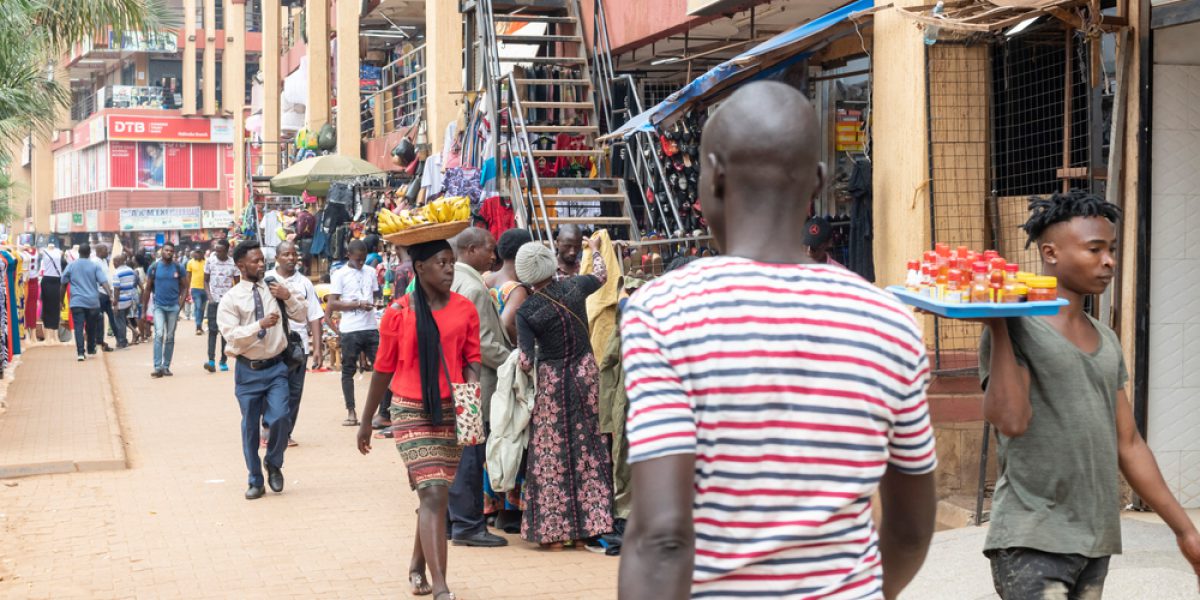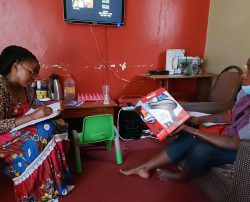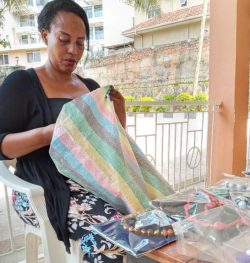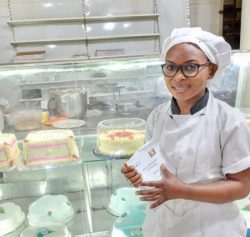JRS Uganda: A bridge to employment through entrepreneurship training
07 February 2022

In Kampala, Uganda, over one hundred refugees, skilled in various trades such as tailoring, dress making, electronic repair, baking, and cosmetics, have taken the first steps in opening their own small businesses. Mentorship and skills training are components of the JRS-run business and entrepreneurship initiative in Uganda, part of a larger, holistic livelihoods program.
Uganda’s economic environment is unique in that it is relatively welcoming to refugees. In Uganda, refugees have a recognized right from the government to work, to pursue business opportunities, and to create capital for themselves. In response, JRS Uganda has created a program that supports refugees in their careers.
In this entrepreneurship program, refugees assess their talents and skills, develop professional strategies, set time-oriented goals, and utilize a grant to launch their professions. With business mentors, the participants of this program create comprehensive blueprints mapping the trajectory of their careers.
Meet some of the small-business owners in Kampala:
Amani Byaluhu
Amani has mastered skills in tailoring and dress making. When the COVID-19 pandemic increased the demand for facial coverings, he began crafting face masks as well. With his business loan, Amani bought a sewing machine and he works from home to reduce the cost of rent. Amani’s goal for the next year is to sustain an increase in clientele by opening a larger shop.
 Aminata
Aminata
Aminata owns a mobile hair salon in Kampala where she travels to her clients to do their hair. Her sister, a skilled tailor, also owns a small business. The two sisters’ business goal is to rent a location together where they will combine their talents and expand their services.
Bahati
Bahati is also a tailor. He graduated from the JRS fashion and design program and started his business in December of 2019. Bahati’s business strategy is rooted in a goal of growing his business organically and saving intentionally. To save on rent, Bahati is living in his church. In five years, Bahati plans to open a workshop where he can engage with more customers.
Claire 
Claire is a talented artist who trained in arts and crafts with JRS. Digital communication is at the core of her business strategy and she has put her products on WhatsApp to reach a broader clientele. Her goal is to continue building her presence in the digital marketing sphere.
Keren
Keren learned her tailoring skills from her sister, who studied fashion and design with JRS, but Keren’s ultimate goal is to run a bakery from her home. Her plan is to continue tailoring until she saves enough money to support her own bakery. She also plans to use a loan to purchase an oven which will allow her to take her baking to the next level.
Irene
Irene and her friend share a small shop space and used their grant to purchase the tools needed to kickstart her hair styling business. Irene’s goal is to own a large hair salon in five years where she can employ other young people from her church.
 Melissa
Melissa
After graduating from the catering program with JRS, Melissa got a job in confectionery at a local supermarket. She has since purchased equipment to start her own baking and cake decorating business.
Monica
Monica studied hairdressing with JRS. While she is currently operating a charcoal stall, she is using this income to save enough money to start her own salon. Her goal is to open this salon in five years.
200 more refugees will enter the livelihoods program in March 2022, as JRS Uganda continues to support and foster opportunities for economic and entrepreneurial engagement.



